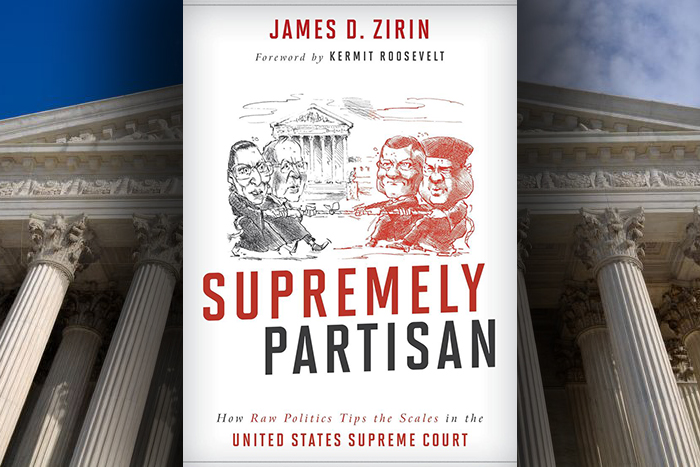By the Book: Review – 'Supremely Partisan' by James Zirin

It’s no secret that the newest Supreme Court Justice, Neil Gorsuch, will determine the direction of the Court for at least a generation; or that the Supreme Court votes largely along ideological party lines. In a timely, riveting and historically informed new book, Supremely Partisan—How Raw Politics Tips the Scales in the United States Supreme Court, attorney and former federal prosecutor James Zirin takes a close look at that highly politicized Supreme Court, exploring another “secret” many readers already know: the Supreme Court has become a supremely political and partisan body.
He begins with a brief but comprehensive history of the Court, not simply listing famous cases, but explaining their origins and far-reaching consequences before explaining what the Court is supposed, and not supposed, to do. Throughout the book Zirin examines whether or not the Court has become a political one, making policy judgments based on sources outside of the Constitution. He offers an explanation of the Supreme Court’s original and intended purposes, and explains how it may have veered off course. He examines four of the Court’s most controversial recent decisions—Hobby Lobby, Obamacare, gay marriage, and capital punishment—arguing that these politicized decisions threaten to undermine public confidence in the Court.
In a highly knowledgeable and entirely accessible prose, Zirin explains how we arrived at this present situation and looks at the current divide through its leading partisans, Justices Ruth Bader Ginsburg and Sonia Sotomayor on the left and Clarence Thomas and the late Antonin Scalia on the right. He argues that identity politics has become the overwhelmingly decisive factor in the appointment process. Indeed, the chapters on the current justices—including the Catholic Seat (five are Catholic), the Jewish (three are Jewish), the Female, the Black, and now the Latina Seat—are crisp, insightful and spot-on.
This vivid, no-holds-barred portrait of the politicization of the Supreme Court is a must-read for anyone concerned about a Supreme Court hanging in the balance of politics.



